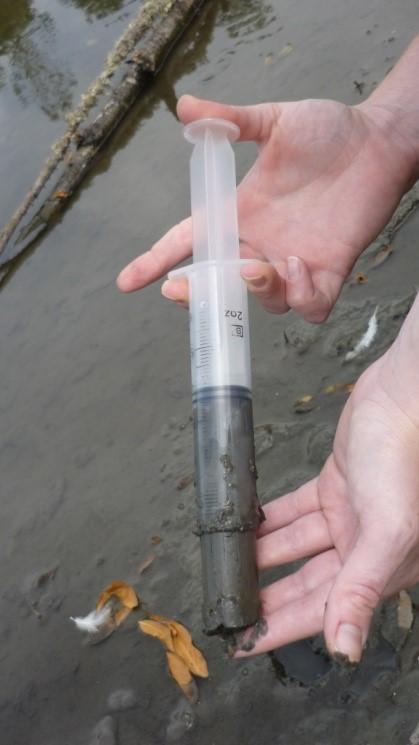Indicators: Sediment Enzymes

What are sediment enzymes?
Sediment enzymes are proteins that are produced by microorganisms living in the sediment or soil as they break down their food sources. Enzymes help speed up chemical reactions in the sediment to make nutrients more accessible to other organisms.
Why is it important to evaluate sediment enzymes?
Sediment enzymes play an important role in the decomposition of organic carbon and nutrient cycling. The amount of enzymes in the sediment depends on the number and types of microorganism communities present. Because enzymes need a lot of energy to make, they are only produced when microorganisms need to use them.
What can sediment enzymes tell us about the condition of water?
Enzyme activity serves as an indicator of key ecosystem processes since microorganisms are influenced by the physical and chemical properties of the sediment in which they live. Due to the conservative production of enzymes by the microbe community, sediment enzymes can help determine which nutrients are the limiting factors that affect the biological community within the aquatic resource.
